All Stories
-
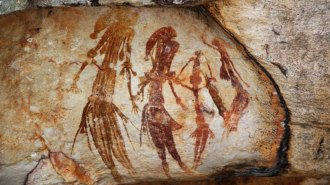 Archaeology
ArchaeologyWasp nests provide the key to dating 12,000-year-old Aboriginal rock art
Dating wasp nest remnants found beneath and atop painted rock art in Australia suggests the pictures were made some 5,000 years later than thought.
By Bruce Bower -
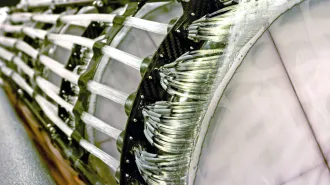 Physics
PhysicsA barrier to colliding particles called muons has been smashed
Future particle accelerators could slam muons together to reach higher energies than any before.
-
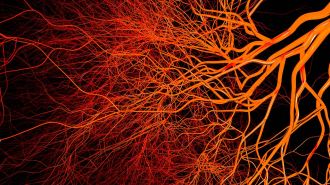 Neuroscience
NeuroscienceInjecting nanoparticles in the blood curbed brain swelling in mice
Nanoparticles divert inflammation-causing cells away from the brain after a head injury, a mouse study shows.
-
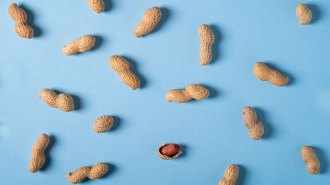 Health & Medicine
Health & MedicineThe FDA has approved the first drug to treat peanut allergies
The drug, called Palforzia, may reduce the dangers of unintentional exposure to peanuts for allergic children.
-
 Particle Physics
Particle PhysicsMisbehaving kaons could hint at the existence of new particles
Certain extremely rare decays seem to be happening more often than expected, and scientists don’t know why.
-
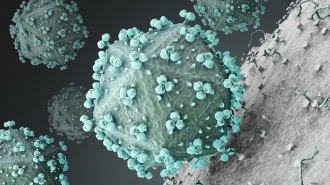 Health & Medicine
Health & MedicineAn experimental HIV vaccine failed a key trial in South Africa
A vaccine against the human immunodeficiency virus tested in South Africa did not reduce the risk of infection with the virus.
-
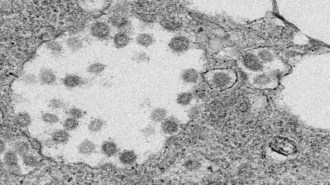 Health & Medicine
Health & MedicineSARS and the new coronavirus target the same cellular lock to infect cells
Experiments with living cells grown in the lab show that 2019-nCoV enters cells the same way as SARS.
-
 Materials Science
Materials ScienceThe containers the U.S. plans to use for nuclear waste storage may corrode
The different components of a nuclear waste storage unit start to corrode each other when wet, new lab experiments show.
-
 Health & Medicine
Health & MedicineScientists question White House measures to limit spread of coronavirus
The White House announced new steps to fight the coronavirus outbreak, in what’s becoming one of the biggest public health challenges in decades.
-
 Climate
ClimateA new roadmap shows how the U.S. could be carbon-neutral by 2050
A new report charts a roadmap for the U.S. to have zero carbon footprint by 2050, but only with heavy and immediate investment in carbon removal technologies.
-
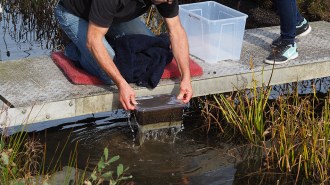 Ecosystems
EcosystemsFewer worms live in mud littered with lots of microplastics
The environmental effects of microplastic pollution are still hazy, but new long-term, outdoor experiments could help clear matters up.
-
 Health & Medicine
Health & MedicineThe first case of coronavirus being spread by a person with no symptoms has been found
Coronavirus cases among coworkers in Germany suggest that the virus can spread from person to person before symptoms appear, similar to the flu.